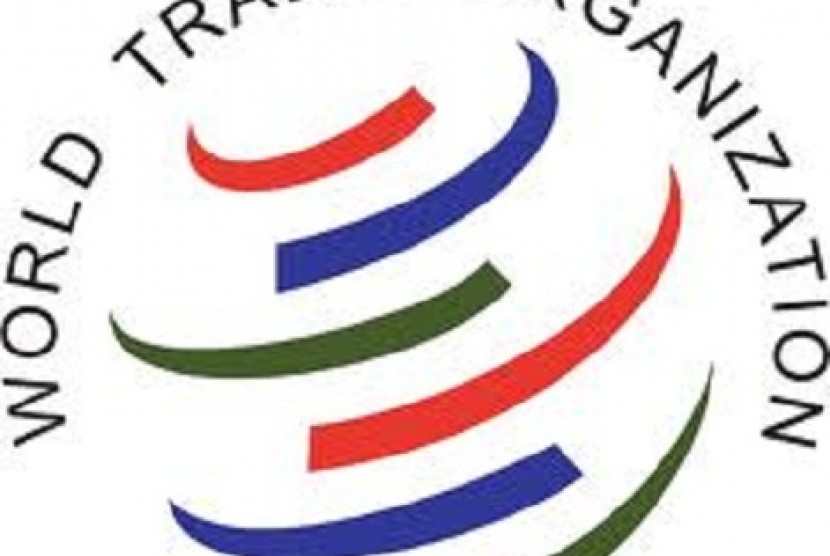REPUBLIKA.CO.ID, By: M. Aminuddin *)
JAKARTA -- Bali will again host a major international event, a ministerial conference of the member countries of the World Trade Organization (WTO).
Bali will host the WTO conference next months in its beach resort of Nusa Dua where the Asia Pacific Economic Conference (APEC) was convened only last month.
World Trade Organization (WTO) was officially established on January 1, 1995 as an offspring of the Uruguay Round based on the General Agreement on Tariff and Trade (GATT).
WTO was formed after the signatories of GATT agreed to establish a new and permanent umbrella organization to replace GATT which was established in 1947.
Unlike GATT, which was not intended to be permanent, WTO was established as a permanent forum of international trade negotiations, reviewing trade policies of member countries, and it cooperates with the World Bank and the International Monetary Fund (IMF) in more integrated attempts to produce acceptable world trade policies.
Compared with GATT, WTO is more complete and up-to-date in dealing with much more complex issues of global trade. WTO has wider coverage of global commerce. It has the standard procedure to settle disputes and under its rule the possibility unilateral actions is narrowed.
All signatories of WTO had to automatically accept the entire Uruguay Round agreements without exception.
The establishment of WTO has led to the emergence of regional free trade pacts and investment agreements such as Western Europe's EFTA, North America's NAFTA, Southeast Asia's AFTA, Latin America and Asia Pacific's APEC.
A number of countries originally adopting closed , regimented and centralized economic policy such as Russia, China, Vietnam and Myanmar, have transformed themselves into open economies joining in the process of globalization. It turned out they recorded a faster economic growth and they have joined AEC and APEC.
GATT and later WTO were established to settle international trade disputes. The United Nations formed GATT in October 1947 in a bid to cope with trade disputes. Disputes, however, continued even grew in number involving both advanced and major economies such as the United States, Western Europe, Canada and Japan.
Frictions between the United States and Japan even threatened to break out into a trade war.
Dispute was sharp notably over farm commodities between advanced and developing economies. Indonesia was no exception.
Japan, the United States and the European Union accused Indonesia of violating the WTO rule when the country launched its National Car program under the presidential instruction (Inpres) No 2/1996.
Japan lodged a protest against Indonesia with the WTO saying the Indonesian National Car Policy was against the principle of Most Favored Nation Treatment (MFNT) as Indonesia exempted Korean cars from luxury import duty. Indonesia was accused of discriminating against other car exporting countries.
Indonesia acceded to GATT in May 1950. Now WTO has 152 members and in December 2013 it will hold the 9th ministerial meeting in Bali. The main agenda concerns environmentally friendly farm commodities which often been restricted by advanced nation.
WTO members including industrialized, developing as well as least developing economies are equal in status and rights.
Chronology of GATT-WTO
On October 30, 1947: A 23 member delegation of the Preparatory Committee of the Economic and Social Affairs Council of the United Nations drafting the charter of the International Trade Organization (ITO) signed the General Agreement on Tariffs and Trade (GATT) in Geneva.
On January 1, 1948: GATT became effective with 23 initiator countries including China, France, Britain and the United States.
On March 24, 1948: International conference on wages and trade in Havana, Cuba, ended with the signing of the Havana Charter also related to the establishment of ITO.
August, 1949: The second round of Multilateral Trade Negotiation (MTN) ended in Annecy, France, with the agreement on concession for 5,000 tariff categories.
December, 1950: The US government indicated it would not comply with the ITO Pact, resulting in ITO failing to function as expected.
April, 1951: The third round of MTN was held in Torquay, Britain, ended with an agreement to cut 8,700 tariff categories.
May, 1956: The fourth round of negotiations was held in Geneva agreeing further cut in tariffs.
1958: The Haberler Report was made the general reference for GATT operations.
March, 1962: The fifth round of MTN (Dillon Round) agreed to give concession for 4,400 tariff categories.
May, 1964: Ministerial meeting at the Trade Negotiation Committee (TNC) was formed at the opening of the sixth round of MTN (Kennedy Round) which ended in June 1967.
On January 1, 1974: The Multifibre Arrangement (MFA) was made effective.
November, 1979 : The seventh round of (Tokyo Round) of MTN ended after running for six years with agreement to reduce import restrictions demanded by industrialized countries on tropical products of developing countries .
On September 20, 1986 : Trade Ministers at Punta del Este, Uruguay agreed that the 8th round of MTN, was effective for four years .
On December 20, 1991 : GATT Director General Arthur Dunkel approved the Uruguay round act .
On January 13, 1992 : The European Community(ME, now European Union) rejected tariff cut in the farm sector.
On November 20, 1992 : ME and the United States agreed to hold farm negotiations known as The Blair House Accord.
On June 30, 1993 : The US Congress pledged to immediately ratify the Uruguay Round agreement , not later than 15 December 1993.
On July 1, 1993 : Peter Sutherland became new GATT director general.
On July 14, 1993 : The Trade Negotiation Committee (TNC) held a series of negotiations .
On December 15, 1993 : TNC approved the Uruguay Round .
On April 15, 1994 : Trade Ministers in Marrakesh, Morocco, signed the final act of the Uruguay Round , and agreed with the establishment of the World Trade Organization (WTO).
On December 8, 1994 : It was agreed that WTO was to start operation on January 1, 1995.
*) Former Finance Director and senior journalist of Antara


